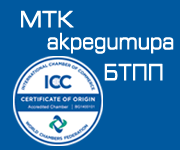Назад
Назад
Why pile up new legislative changes?
TSVETAN SIMEONOV before the Parliamentary Group of Political Party GERB and the Social Policy Committee at the 41st National Assembly regarding the proposals of the Confederation of Independent Trade Unions in Bulgaria “KNSB” about improving collective ba
01-07-2011
Madam Chairperson,
Minister,
Members of Parliament,
Thank you for the opportunity to discuss the questions raised by the Confederation of Independent Trade Unions in Bulgaria “KNSB” in such a wide circle and with the participation of the major parliamentary group.
Our experts studied and discussed all proposals very carefully. I would like to say that there are proposals we are almost ready to accept, such as defining the meaning of the term “collective labour dispute” in the Settlement of Collective Labour Disputes Act.
Besides, we agree to synchronize the legal provisions for strike actions while taking into consideration the constitutional provisions for protection of the economic and social interests.
The proposal of ratifying Convention 154 of the International Labour Organisation concerning the promotion of collective bargaining could also be discussed, as well as specifying the parties in the bilateral dialogue. I will once again repeat the proposal which was made on multiple occasions – to accept a general law on sectorial organizations in accordance with the engagements our country undertook when signing and/or ratifying international acts.
As far as the other issues are concerned, we have prepared a detailed position paper. I hope that it will come to the attention of the members of the parliamentary group first, so that they get acquainted with our reasons, and we will send them to the social partners.
To continue what Mr. Danev (Bulgarian Industrial Association) said, I would like to remind that Convention 87 of the International Labour Organization concerning Freedom of Association and Protection of the Right to Organize refers to both labour unions and employers’ organizations. Thus, there is no doubt that what applies to one of them, applies to the others as well. In this sense, criminalizing any behaviour which doesn’t allow the execution of this freedom, would be a little too farfetched in my opinion, as would be the criminalization with regard to employment claims guarantees.
I will state two reasons for this: firstly, because our members would quite legally request a balanced protection – protection of our right of association as well and therefore the respective punitive measures stipulated by law against the restrictions of this right. Secondly, they will also request a guarantee of company claims. Therefore, we once again raise the question – Who will be responsible for the 7% deduction of the sums which had to be paid by the state and which remained at the expense of the companies?
What would have happened if there had been such a regulation protecting the interests of employers?
We would also like to see first to what extent the existing forms of protection are being used by the ones claiming that their rights aren’t protected and just then to look for other methods of protection. In this sense we will consider all proposals.
I already mentioned Convention 87 – it is clear, but I would like to know how many times in the past several years the responsibility of the state and the state institutions was engaged before the so-called Norms Committee, which is the internationally acknowledged place for such claims of organizations, both employers’ and labour unions, to be solved?
Even now the Penal Code provides the opportunity, in case someone isn’t hired or is dismissed because of union activity, to bring their employer to trial. One review of the legal practice shows that there is no evidence of such proceedings or that this opportunity has been used. In this sense, we should stop and think for a while - why do we need to pile up new legislative changes?
As far as collective and labour disputes are concerned, I will only mention that there is an Arbitration for Conciliation in which we have our representatives – arbitrators. I don’t think there has been anyone who remained dissatisfied with the results of its works since its establishment. Therefore, before proposing new regulations, let’s analyze carefully the funds which were spent to set up this institution. What results were achieved by it? As it is commonly said lately, let’s make an impact assessment before discussing other legislative changes.
These are only some of the motives we have prepared and present to your attention.
=================================
POSITION PAPER
OF THE BULGARIAN CHAMBER OF COMMERCE AND INDUSTRY
REGARDING: PROPOSAL OF THE CONFEDERATION OF INDEPENDENT TRADE UNIONS IN BULGARIA “KNSB” TO IMPROVE COLLECTIVE BARGAINING
REGULATION
MR. CHAIRPERSON,
The members of BCCI find the following proposals of KNSB well-founded:
o defining the meaning of the term “collective labour dispute” in the Settlement of Collective Labour Disputes Act;
o synchronizing the legal provisions for strike actions under the Settlement of Collective Labour Disputes Act (regarding issues related to labour and social security relations and standard of living) with the constitutional provisions for strike actions (“to protect the economic and social interests of workers and employees”);
o ratifying Convention 154 of the International Labour Organisation concerning the promotion of collective bargaining;
o specifying the parties in the bilateral dialogue by adopting a common law on sectorial organizations, which shall regulate the criteria for representativeness of sectorial organizations.
BCCI does not support the following proposals of KNSB:
1. Criminalizing actions aimed against the right of association:
The Penal Code regulates only “socially dangerous acts, which have been committed by delinquency” (Art. 9 of the Penal Code). BCCI considers the proposal to criminalize any activities aimed against the right of association unfounded, because there isn’t enough data proving the systematicity (massiveness) of such behaviour and establishing the possible level of violation of this right and respectively its danger for the public.
The fact that the right to participate in political parties is guaranteed by the provisions of the Penal Code doesn’t change BCCI’s position on the subject, because the political system is at the root of state governance, therefore violating the political rights of citizens must be prosecuted.
In addition to the Constitution of the Republic of Bulgaria and Convention 87 concerning Freedom of Association and Protection of the Right to Organise, the right of association is also guaranteed to the necessary level by the criminal law by as stipulated in Art. 172 of the Penal Code.
Excessive degree of criminalization of actions/deeds creates a risk to put an unnecessarily burden on the law enforcement authorities, given that even now the results of their activity show a lack of sufficient administrative capacity.
2. Approbating new means of resolving collective labour disputes:
The proposal is not stated clearly enough.
If the proposal means regulating new forms of protest – we have to say that even now the Settlement of Collective Labour Disputes Act regulates symbolic strike in addition to effective strike, while the Meetings, Rallies and Demonstrations Act provides an opportunity for other forms of protest and protection.
If the proposal means regulating a new order for settlement of collective labour disputes (instead of the existing order under the Settlement of Collective Labour Disputes Act – i.e. collective labour disputes are settled by the National Institute for Conciliation and Arbitration), then such a change is unfounded – the current practice proves that these disputes are efficiently solved by the National Institute for Conciliation and Arbitration with the participation of representatives of the labour unions and the employers’ organizations.
3. Expanding the possibilities for collective bargaining in the public sector before preparing the various budgets.
The centralized estimation of budget expenses, in accordance with the incomes and the economic and political priorities of the country does not allow such liberalization.
4. Institutionalization of employers’ organizations:
First of all, the term “institutionalization” must be specified.
However:
o Employers should have the freedom (in accordance with their by-laws) to choose what form of activities to take in order to protect the interests of their members.
o Keeping in mind the principle of equality of national employers’ organizations and labour unions, institutionalization of employers’ organizations may be considered only after a law on labour unions is adopted.
5. Prolonging the term of activity of collective labour contracts (instead of the maximum 2-year limit existing at present) is inexpedient, especially in view of the current unstable economic conditions in the country, Europe and around the world.
6. Specifying longer negotiation terms when signing collective labour contracts, defining a procedure and structure-defining positions of collective labour contracts will inevitably limit the freedom of contract. The definition which the labour union requests violates the freedom of contract. We consider the current obligation of employers to negotiate enough because otherwise, the subjective right of contract will be excluded, and contract conditions will be imposed by regulation.
7. The obligation of employers to provide information about the economic and financial status of the company is regulated by the current Labour Code (Art. 52). Any attempt to make this information more concrete will mean not taking into consideration the specific aspects of the activity and violating business secrecy.
8. The proposal to supplement Art. 417 of the Civil Procedure Code with a new item 10 – takings under payroll and compensation sheets:
According to the provisions of the current Civil Procedure Code, the District Court takes cognizance of all labour disputes, irregardless of their value (Art. 103 in relation to Art. 104, item 4 of the Civil Procedure Code). Therefore an enforcement order may be required for all wages and compensations, as they are within the cognizance of the District Courts (Art. 410, para 1, item 1 of the Civil Procedure Code).
01.07.2011
Още новини:
-
23-06-2011

 1 USD =
1 USD =  1 GBP =
1 GBP =  1 CHF =
1 CHF =  ISO 9001:2015
ISO 9001:2015




























